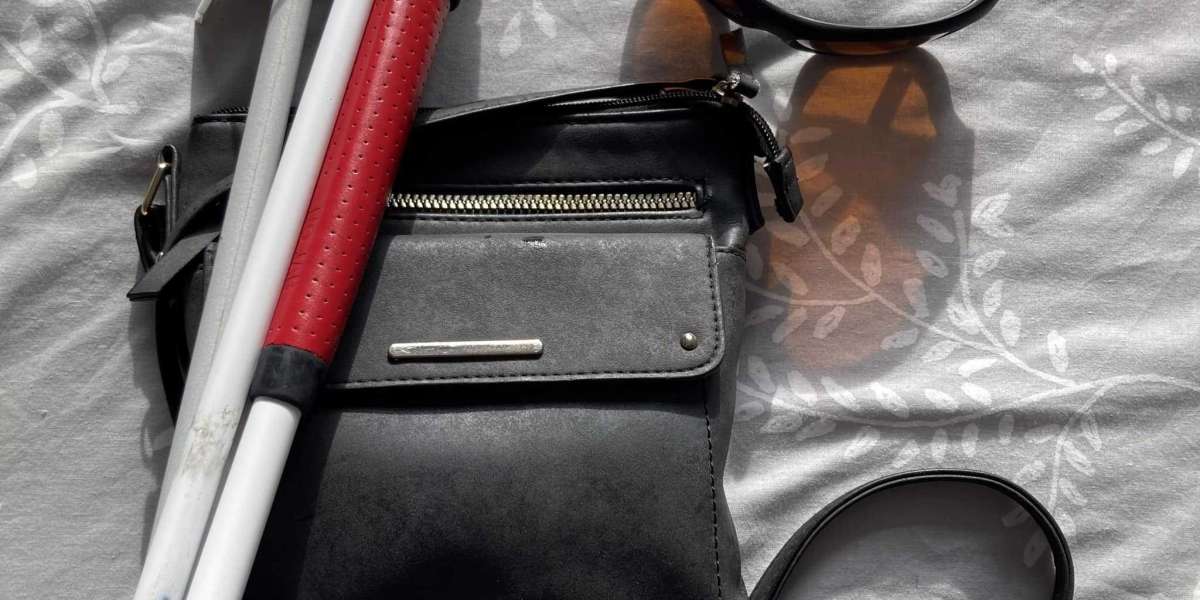Love to shop? I’m not a fan and here’s why.
The realities of shopping with sight loss.
I used to love nothing more than browsing the shops. But that was back when I had more useful sight.
Shopping has now become a necessity, rather than something fun to enjoy. It’s a very planned, targeted experience, knowing exactly what I need, having the store already mapped out in my head and roughly where the items I need are located, and where the till points are.
But what happens when we get to any change in the season, or upcoming holidays?
The layout changes. And not by a shelf or a rail. We’re talking whole aisles here.
And to be perfectly frank, it’s an absolute nightmare.
I know that retailers need to keep things fresh for marketing, to promote special offers, sales, and seasonal products.
But for the visually impaired community, it simply adds another layer of stress onto what is already a stressful experience.
Let me tell you about my day today…
Store Layout
I had a mental list of what I needed. I eventually managed to find what I was looking for in the first store, after endless hunting. And before anyone suggests ‘why didn’t you ask a member of staff?’ Well, they aren’t always easily identifiable! Large floor areas had been entirely relocated, to make way for the new season stock.
Lighting
Store lighting is not VI friendly either. There seems to be a trend for dark, shadowy areas where I feel I need a torch, juxtaposed to areas where the light is so excruciatingly bright that I need to put on my heavy-duty wraparound sunglasses.
Labelling
This is a huge headache everywhere. From shelf edge to clothing labels, nothing is easy to read. Another store I visited today, again with awful lighting, had me on my knees with my magnifying glass, trying to decipher white text on a pale blue clothing label. This is one of the worst contrasts ever, and after reading all the labels which took around 15 minutes, I left empty handed as they didn’t have the correct size I needed in stoc
Self-Service Checkouts
These can be great on some occasions. However, if the on-screen text is too small to read, and there are no auditory cues, then they are virtually impossible to navigate independently. I have to trust that the correct prices for the items have gone through, as I have no way of knowing, as it is rare that the machine will tell me what my total cost is. I always pay by card with these, as trying to locate the slots for coins and notes is challenging, especially if you aren’t quick enough. And just to add to the fun, all the self-service machines are different!
Sensory Overload
Combine the stress and anxiety of going shopping, with the heat, music, buzz of customers chatter, , smells, lighting, thinking, navigating, and processing, and this all adds up to sensory overload. And I’m neurotypical. After one shop, I’m done and ready to go home.
Yes, I could go with a friend or family member, but that’s not always convenient, and maybe I’d like to be independent and a little bit spontaneous.
Yes, I could shop online, but that brings a whole host of other challenges which I’ll cover in another blog. Also, not every shop has an online presence.
And yes, after my trip I felt like crying because I was so frustrated. It didn’t help that I sat at the wrong bus stop for half an hour to come home either. If I hadn’t checked the bus app on my phone, I would have sat there even longer before I realised. What would have been a 90-minute trip for fully sighted people who drive, took me four hours using public transport. I was exhausted, mentally, emotionally, and physically as I have a chronic illness too.
Can you relate to any of this? I’d love to know your thoughts and experiences.
PD. Image shows a folded up long white cane with a red leather handle and large roller gball, lying on top of a small black cross body handbag. There are a pair of dark amber coloured wraparound sunglasses lying next to them. The background is a pale grey and white floral duvet cover.








